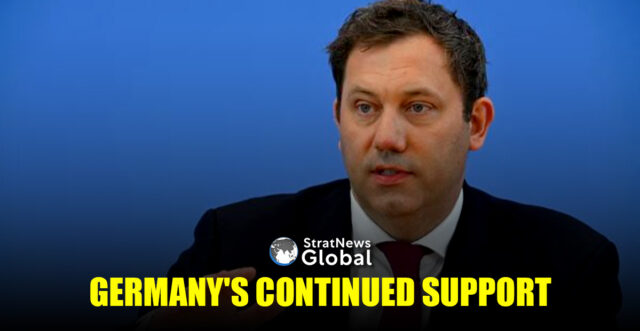Arriving in Ukraine’s capital Kyiv on an unannounced trip on Monday, German Finance Minister and Vice Chancellor Lars Klingbeil said President Vladimir Putin should recognize that Germany’s backing for Ukraine remains steadfast.
“Putin should have no illusions that Germany’s support for Ukraine could crumble,” said Klingbeil, leader of the Social Democratic Party that is the junior partner in Chancellor Friedrich Merz’ conservative-led coalition government.
Klingbeil emphasized that Germany remains the second-largest backer of Ukraine globally and the largest in Europe, having provided €50.5 billion in aid since the onset of Russia’s February 2022 invasion.
“On the contrary: We remain Ukraine’s second-largest supporter worldwide and the largest in Europe,” said Klingbeil. “Ukraine can continue to rely on Germany.”
Peace Negotiations
Klingbeil urged Putin to demonstrate an interest in a peace process in Europe’s deadliest war in 80 years that broke out in February 2022.
U.S. President Donald Trump has pressed for a quick end to the war, but Kyiv and its allies are concerned he could seek to force an agreement on Russia’s terms.
The German Finance Minister said Ukraine needed to be involved in any peace negotiations and called for a ceasefire and robust security guarantees for a lasting peace.
“To this end, we are coordinating closely internationally,” Klingbeil said.
Among options presented this week for security for Ukraine after a possible peace deal, both French President Emmanuel Macron and British Prime Minister Keir Starmer supported troop deployments as part of a coalition of the willing.
Merz has also signalled openness to Germany’s participation but would face a backlash both from within and outside his political spectrum on the matter.
According to Klingbeil’s ministry, the German government has supported Ukraine with 50.5 billion euros ($59.18 billion) since the war started.
This package includes funding for refugees, military aid, civil reconstruction, and budget support. Looking ahead, Berlin plans an additional 8.3 billion euros in military assistance this year and earmarked 8.5 billion euros annually for 2026 and 2027.
($1 = 0.8534 euros)
(With inputs from Reuters)





